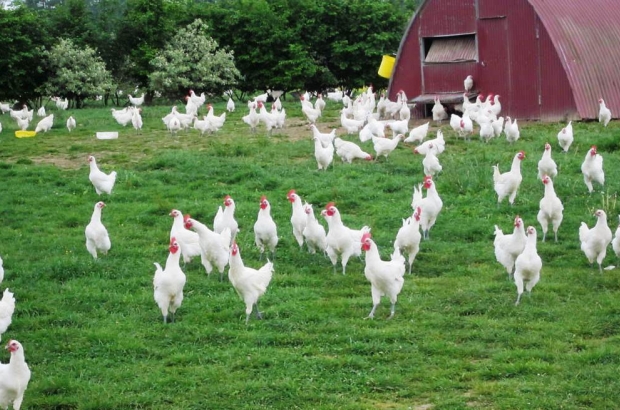- Daily & Weekly newsletters
- Buy & download The Bulletin
- Comment on our articles
Poultry farmers told to lock up stock as bird flu threatens
The federal government has imposed an order on professional poultry farmers to keep their birds indoors or, if they are allowed out of doors, under nets, federal agriculture minister Willy Borsus has announced. Amateur holders of poultry have been advised by the federal food safety agency to keep their birds indoors.
The order is a preventive measure against bird flu, following the conformation of a third outbreak in the Netherlands and the theory that migrating birds may be instrumental in spreading the disease. Bird flu has so far not been encountered in Belgium.
The prevention regulation involves other aspects: Vehicles used to transport birds or eggs must be disinfected after each use; surface water may not be used for watering poultry unless previously treated; birds must be fed indoors; and strict conditions are applied to any gathering of poultry at markets or similar events.
The additional measures apply to amateurs and professionals alike. Finally, all access to places where birds are kept is forbidden to any person or vehicle that has been in one of the risk areas in Germany or the UK, or in any part of the Netherlands, in the previous four days.
The order comes in response to a demand from farmers, said the farmers’ union, Boerenbond. “A number of farms were doing it already, but a general measure makes things a lot easier,” a spokesperson said.
Organic poultry farmers were particularly interested in the government becoming involved, as livestock kept by organic farmers has to be allowed out of doors. “They had to wait for a government order allowing them to stop,” the spokesperson said.
Meanwhile, the rationale for the measure was contested by nature conservancy organisation Natuurpunt, which said that the chance of bird flu transmission by migrating birds was “exceptionally small”. The first case of the disease in the Netherlands hit hens that were already kept indoors, Natuurpunt’s Walter Roggeman said.
“Apart from that, there have been numerous poultry transports that make it impossible to discern a pattern, but which are far more likely to be responsible for spreading the infection, without bringing wild birds into the equation at all,” he said.
About 3,000 birds in Belgium are tested annually since the bird flu crisis of 2005, and no case of the strain of the disease that affects humans has ever been found.



















